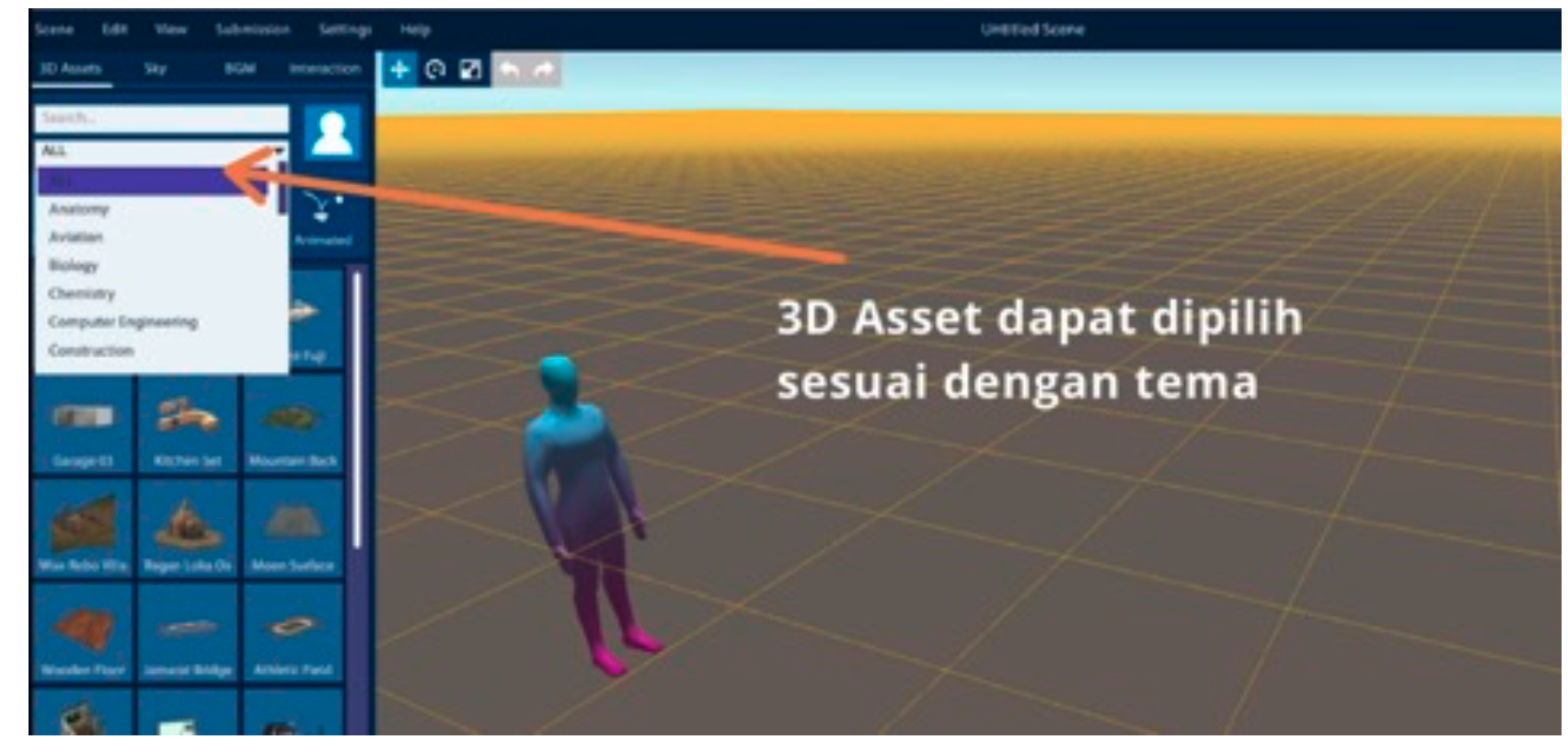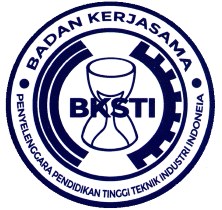Implementation of Metaverse-Based Virtual Reality Technology in Archieving Subjects in Vocational High Schools
DOI:
https://doi.org/10.12928/spekta.v4i2.8380Keywords:
virtual reality, Metavers, MilleaLab, Vocational High SchoolAbstract
Background: The problem that occurs to the participants is that the learning media used in the learning process is currently not up to date, so that technological updates are needed to improve the quality of learning. However, to facilitate learning through the integration of the latest technology requires various teacher competencies, namely knowledge, attitudes and skills.
Contribution: The contribution of this program is that the community service to conduct training and mentoring activities on how to develop metaversal-based virtual reality learning media to improve the quality of teachers at state vocational high school 1 Ngawi.
Method: This service is carried out through five stages of activity, including analysis of field needs, manufacture of virtual reality products, early socialization, provide assistance and evaluation of the results of using virtual reality.
Results: The result of this service activity is that the trainees understand the steps for developing learning media with virtual reality technology. This is based on the results of evaluating the achievement of training and mentoring programs involving 27 participants showing that based on the aspects of convenience, usefulness, attractiveness, and satisfaction, an average score of 92% is obtained.
Conclusion: The conclusion of this program is that the metaverse-based virtual reality learning media that was introduced to the participants was very easy to apply, useful, interesting, and the participants were satisfied with the training provided
References
I. Levin dan D. Mamlok, “Culture and Society in the Digital Age,” Information, vol. 12, no. 2, p. 68, 2021, https://doi.org/10.3390/info12020068.
D. W. Shaffer, “Education in the digital age,” Nordic Journal of Digital Literacy, vol. 3, no. 1, pp. 39–52, 2008, https://doi.org/10.18261/ISSN1891-943X-2008-01-04.
Y. Li, M. Kim, dan J. Palkar, “Using emerging technologies to promote creativity in education: A systematic review,” International Journal of Educational Research Open, vol. 3, p. 100177, 2022, https://doi.org/10.1016/j.ijedro.2022.100177.
N. Asikin, N. Nevrita, dan O. Alpindo, “Pelatihan Pemanfaatan Media Pembelajaran Berbasis Virtual Reality untuk Guru-Guru IPA Kota Tanjungpinang,” Jurnal Anugerah: Jurnal Pengabdian kepada Masyarakat Bidang Keguruan dan Ilmu Pendidikan, vol. 1, no. 2, p. 71–76, 2019, https://doi.org/10.31629/anugerah.v1i2.1606.
M. Suryaman, L. Setiyani, R. Gunawan, D. B. Santoso, R. Fitriyani, dan N. Ikhsan, “Pengenalan Pemanfaatan Teknologi Virtual Reality (VR) Dan Augmented Reality (AR) Dalam Proses Pembelajaran Kepada Para Guru Dan Siswa Di Smk Negeri 1 Cilamaya Kabupaten Karawang,” Jurnal Pengabdian Mandiri, vol. 2, no. 1, pp. 167–174, 2023, https://bajangjournal.com/index.php/JPM/article/view/4678.
R. S. Syafril, “Penerapan Sederhana Virtual Reality Dalam Presentasi Arsitektur,” NALARs, vol. 19, no. 1, pp. 29–40, 2019, https://doi.org/10.24853/nalars.19.1.29-40.
I. M. Y. Pratama, I. G. P. Sindu, dan G. S. Santyadiputra, “Pengembangan Aplikasi Virtual Reality Mengenal Macam-Macam Benda Di Sekitar Rumah Dalam Bahasa Inggris,” KARMAPATI: Kumpulan Artikel Mahasiswa Pendidikan Teknik Informatika, vol. 8, no. 3, pp. 544–553, 2019, https://doi.org/10.23887/karmapati.v8i3.21695.
S. As, M. Rohman, Purnomo, E. Sutadji, “Pengalaman Game Yang Menyenangkan Untuk Mengidentifikasi Tipe Dunia Metaverse Sebagai Model Pembelajaran Yang Inovatif,” Steam Engineering : Journal of Science, Technology, Education, and Mechanical Engineering, vol. 4, no. 1, pp. 44–54, 2022, https://doi.org/10.37304/jptm.v4i1.4718.
D. M. Pangestu dan A. Rahmi, “Metaverse : Media Pembelajaran di Era Society 5.0 untuk Meningkatkan Kualitas Pendidikan,” Journal of Pedagogy and Online Learning, vol. 1, no. 2, pp. 52–61, 2022, https://doi.org/10.24036/jpol.v1i2.17.
I. R. Karo-Karo and R. Rohani, “Manfaat Media Dalam Pembelajaran,” AXIOM, vol. 7, no. 1, 2018, http://dx.doi.org/10.30821/axiom.v7i1.1778.
Y. Mulati, “Analisis Penggunaan Teknologi Metaverse terhadap Pembentukan Memori pada Proses Belajar,” Ideguru: Jurnal Karya Ilmiah Guru, vol. 8, no. 2, pp. 120–128, 2022, https://doi.org/10.51169/ideguru.v8i2.480.
L. Zonaphan, K. Northus, J. Wijaya, S. Achmad and R. Sutoyo, "Metaverse as A Future of Education: A Systematic Review," 2022 8th International HCI and UX Conference in Indonesia (CHIuXiD), pp. 77-81, 2022, https://doi.org/10.1109/CHIuXiD57244.2022.10009854.
Y. Indarta, A. Ambiyar, A. D. Samala, dan R. Watrianthos, “Metaverse: Tantangan dan Peluang dalam Pendidikan,” Basicedu, vol. 6, no. 3, pp. 3351–3363, 2022, https://doi.org/10.31004/basicedu.v6i3.2615.
I. A. Endarto, M. Martadi “Analisis Potensi Implementasi Metaverse Pada Media Edukasi Interaktif,” Barik, vol. 4, no. 1, 2022, https://ejournal.unesa.ac.id/index.php/JDKV/article/view/48250.
J. W. Kemp dan D. Livingstone, “Putting a Second Life ‘Metaverse’ skin on learning management systems,” Proceedings of the Second Life Education Workshop at SLCC, pp. 13–18, 2006, https://scholarcommons.scu.edu/acatech/7/.
F. T. Collins, “Looking to the future: Higher education in the Metaverse,” Educause Review, vol. 43, no. 5, pp. 51–63, 2008, https://er.educause.edu/articles/2008/9/looking-to-the-future-higher-education-in-the-metaverse.
A. R. Isnain, A. D. Putra, dan S. Setiawansyah, “Pengenalan Teknologi Metaverse Untuk Siswa SMK Budi Karya Natar,” JEIT-CS, vol. 1, no. 3, pp. 132–136, 2023, https://doi.org/10.33365/jeit-cs.v1i3.204.
H. Koo, “Training in lung cancer surgery through the metaverse, including extended reality, in the smart operating room of Seoul National University Bundang Hospital, Korea,” Journal of Educational Evaluation for Health Professions, vol. 18, p. 33, 2021, https://doi.org/10.3352/jeehp.2021.18.33.
X. Zhang, Y. Chen, L. Hu, dan Y. Wang, “The metaverse in education: Definition, framework, features, potential applications, challenges, and future research topics,” Frontiers in Psychology, vol. 13, p. 1016300, 2022, https://doi.org/10.3389/fpsyg.2022.1016300.
Z. Allam, A. Sharifi, S. E. Bibri, D. S. Jones, dan J. Krogstie, “The Metaverse as a Virtual Form of Smart Cities: Opportunities and Challenges for Environmental, Economic, and Social Sustainability in Urban Futures,” Smart Cities, vol. 5, no. 3, pp. 771–801, 2022, https://doi.org/10.3390/smartcities5030040.
F. De Felice, A. Petrillo, G. Iovine, C. Salzano, dan I. Baffo, “How Does the Metaverse Shape Education? A Systematic Literature Review,” Applied Sciences, vol. 13, no. 9, p. 5682, 2023, https://doi.org/10.3390/app13095682.
A. Kemec, “From Reality to Virtuality: Re-discussing Cities with the Concept of the Metaverse,” International Journal of Management and Accounting, vol. 4, no. 1, pp. 12–20, 2022, https://doi.org/10.34104/ijma.022.00120020.
A. Koohang et al., “Shaping the Metaverse into Reality: A Holistic Multidisciplinary Understanding of Opportunities, Challenges, and Avenues for Future Investigation,” Journal of Computer Information Systems, vol. 63, no. 3, pp. 735–765, 2023, https://doi.org/10.1080/08874417.2023.2165197.
B. A. C. Permana, H. Bahtiar, A. E. Sutriandi, M. Djamaluddin, dan Suhartini, “Pelatihan Pemanfaatan Teknologi sebagai Media Pendukung Pembelajaran untuk Guru di Kecamatan Sembalun,” Absyara: Jurnal Pengabdian pada Masyarakat, vol. 2, no. 2, pp. 230–238, 2021, https://doi.org/10.29408/ab.v2i2.4210.
I. A. Syukur, “Profesionalisme Guru dalam Mengimplementasikan Teknologi Informasi dan Komunikasi di Kabupaten Nganjuk,” Jurnal Pendidikan dan Kebudayaan, vol. 20, no. 2, pp. 200–210, 2014, https://doi.org/10.24832/jpnk.v20i2.138.
D. R. Rahadi, A. Morgan, dan M. Yudhistira, “Pelatihan Pemanfaatan Teknologi Sebagai Media Pendukung Pembelajaran Online Bagi Guru Sekolah Menengah Atas,” Jurnal Pengabdian kepada Masyarakat, vol. 7, no. 1, pp. 70–82, 2023,
F. Dewi, R. Justicia, dan T. C. Bayuni, “Pelatihan Media Berbasis Teknologi Untuk Meningkatkan Kompetensi Guru PAUD,” MARTABE : Jurnal Pengabdian Masyarakat, vol. 5, no. 1, 2022, http://dx.doi.org/10.31604/jpm.v5i1.291-300.
M. Najah, A. F. Malik, dan I. Rachmi, Iskandar, “Perilaku Phone Snubbing (Phubbing) Pada Generasi X, Y DAN Z,” Jurnal Psikologi Ilmiah, vol. 14, no. 2, pp. 25–38, 2022, https://doi.org/10.15294/intuisi.v14i2.38883.
C. Juliane, A. A. Arman, H. S. Sastramihardja, dan I. Supriana, “Digital Teaching Learning For Digital Native; Tantangan dan Peluang,” Jurnal Ilmiah Rekayasa dan Manajemen Sistem Informasi, vol. 3, no. 2, pp. 29–35, 2017, http://dx.doi.org/10.24014/rmsi.v3i2.4273.
R. Sugiarni et al., “Sosialisasi Penggunaan Teknologi Virtual Reality Dan Augmented Reality Dalam Pembelajaran Untuk Menyongsong Era Metaverse,” Jurnal Pengabdian Kepada Masyarakat Abdi Nusa, vol. 2, no. 3, pp. 134–140, 2022, https://doi.org/10.52005/abdinusa.v2i3.99.

Downloads
Published
How to Cite
Issue
Section
License
Copyright (c) 2023 Andi Basuki, Madziatul Churiyah, Buyung Adi Dharma, Muhammad Arief, Dewi Ayu Sakdiyyah

This work is licensed under a Creative Commons Attribution-ShareAlike 4.0 International License.
Authors who publish with SPEKTA (Jurnal Pengabdian Kepada Masyarakat: Teknologi dan Aplikasi) agree to the following terms:
- Authors retain copyright and grant the journal the right of first publication with the work simultaneously licensed under a Creative Commons Attribution License (CC BY-SA 4.0) that allows others to share the work with an acknowledgment of the work's authorship and initial publication in this journal.
- Authors are able to enter into separate, additional contractual arrangements for the non-exclusive distribution of the journal's published version of the work (e.g., post it to an institutional repository or publish it in a book), with an acknowledgment of its initial publication in this journal.
- Authors are permitted and encouraged to post their work online (e.g., in institutional repositories or on their website) prior to and during the submission process, as it can lead to productive exchanges, as well as earlier and greater citation of published work.

This work is licensed under a Creative Commons Attribution-ShareAlike 4.0 International License.












